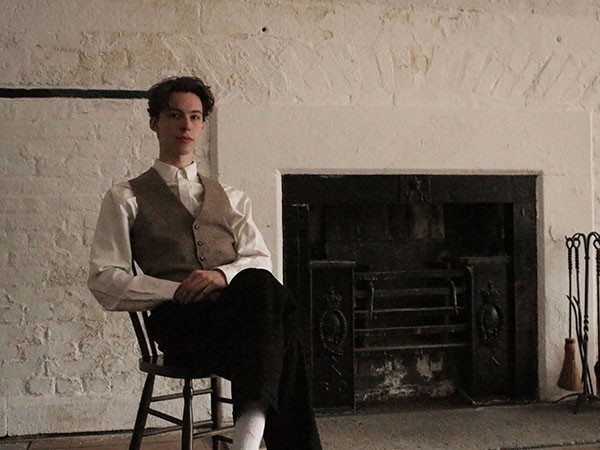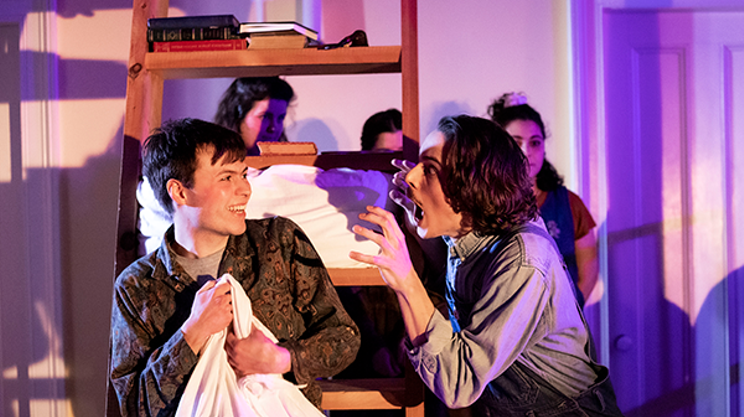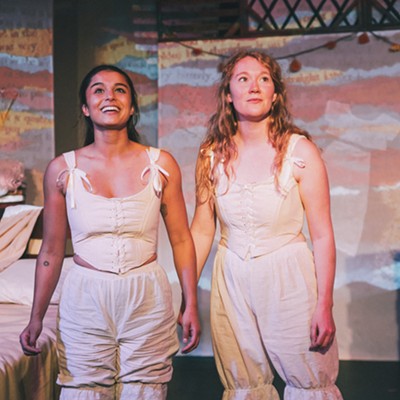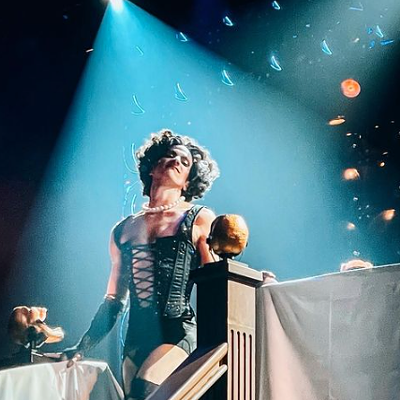Macbeth
February 5-8, 7:30pm
February 9, 2pm, 7:30pm
Halifax Citadel National Historic Site
5425 Sackville Street
$10-30, tickethalifax.com
When she was approached to direct an upcoming production of Macbeth, Julia Schultz says her mind jumped immediately to one of the play's most challenging scenes.
"There's this one Lady Macbeth monologue, 'unsex me here,'" she says, referring to Lady Macbeth's power-hungry plea in Act I to be dispossessed of her natural humanity and filled "top-full of direst cruelty." "It gets done a very specific way a lot of times—maybe a little overdone, a little too sexualized," says Schultz. "And so from the get-go I was thinking about that monologue. How do we make that something human?"
As if taking on Shakespeare wasn't challenging enough, the proposal was bigger than a single play: Michael Kamras and Sam Vigneault had asked Schultz to join them as both Macbeth's director and as co-creator of a brand new company, Steady Theatre Co. Macbeth, running February 5 through 9 at the Halifax Citadel, is their debut production.
Kamras, Vigneault and Schultz are co-producing the show in addition to other roles: Kamras and Vigneault as actors, Schultz as director. Kamras acknowledges that tackling one of Shakespeare's most famous tragedies right out of the gate takes a certain level of ambition—"or naivete," he says with a laugh. It's a monolith of a play, a psychological tilt-a-whirl from its supernatural opening to an infamously gory final scene. But it's the nuance of the text itself that has carried Macbeth across thousands of stages—and the text itself that that Steady has dug deep into for its production.
"I've always been interested in this characterization of [Macbeth] as an outright, rage-filled villain," says Kamras. "And I'm very interested in finding the morality in it—bringing an actual human character to it." Schultz echoes this search for interiority. "He's Walter White, he's all of these prestige TV bad boys you kind of feel sympathy for even though you know he's a bad person," she says. "You're bad! But I feel sorry for you?"
Lady Macbeth gets a similar treatment. Where her "unsex me" monologue can sometimes come across as purely maniacal, Schultz says they sought to uncover something "more nuanced than a Disney villain."
"That is not a cartoonish thing, that's a grounded, human thing to really fucking want power," she says. "Especially as a woman."
The four-leaf clover of a venue, an old army barracks within the walls of the Citadel, also lends itself to a more insular take on Macbeth. The space is less than 600 square feet, features stark white walls and a barreled ceiling, and can fit 30 or so audience members around its oblong perimeter. Elaborate set design was out of the question—with action playing out in the round, Kamras says all of the focus will be on the characters themselves.
"Because we have a more intimate setting, we can really tone it right down, focus more on the relationships between the people instead of the events, and have that be the driving force in our production," he says. "We've really found what I was looking for in this relationship between Macbeth and Lady Macbeth. It's this weird, twisted love for each other that's really pushing them."
That love and the rest of play's thematic concerns—morality, fear, power, guilt—have proven as durable as the Citadel's stone walls. So while Steady didn't approach the play looking to be overtly subversive, both Schultz and Kamras say they felt able to take risks that lean into their interpretation.
"Somebody has already done the quintessential Macbeth, so that pressure is off," says Schultz. "We get to be a little bit irreverent with it because it's been done so many times. Too much reverence to the text would really weigh us down.













